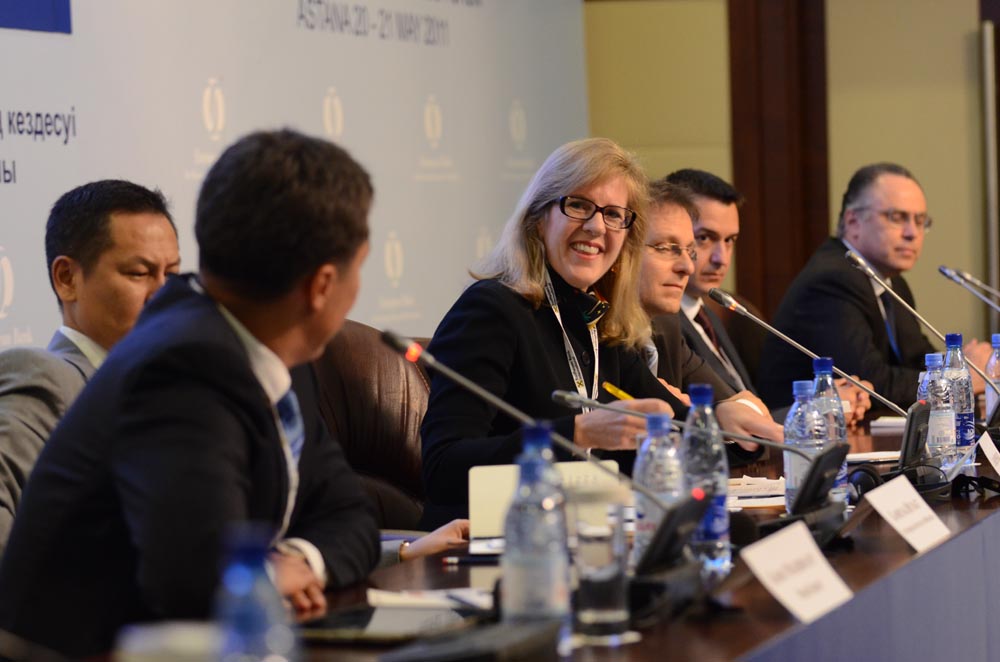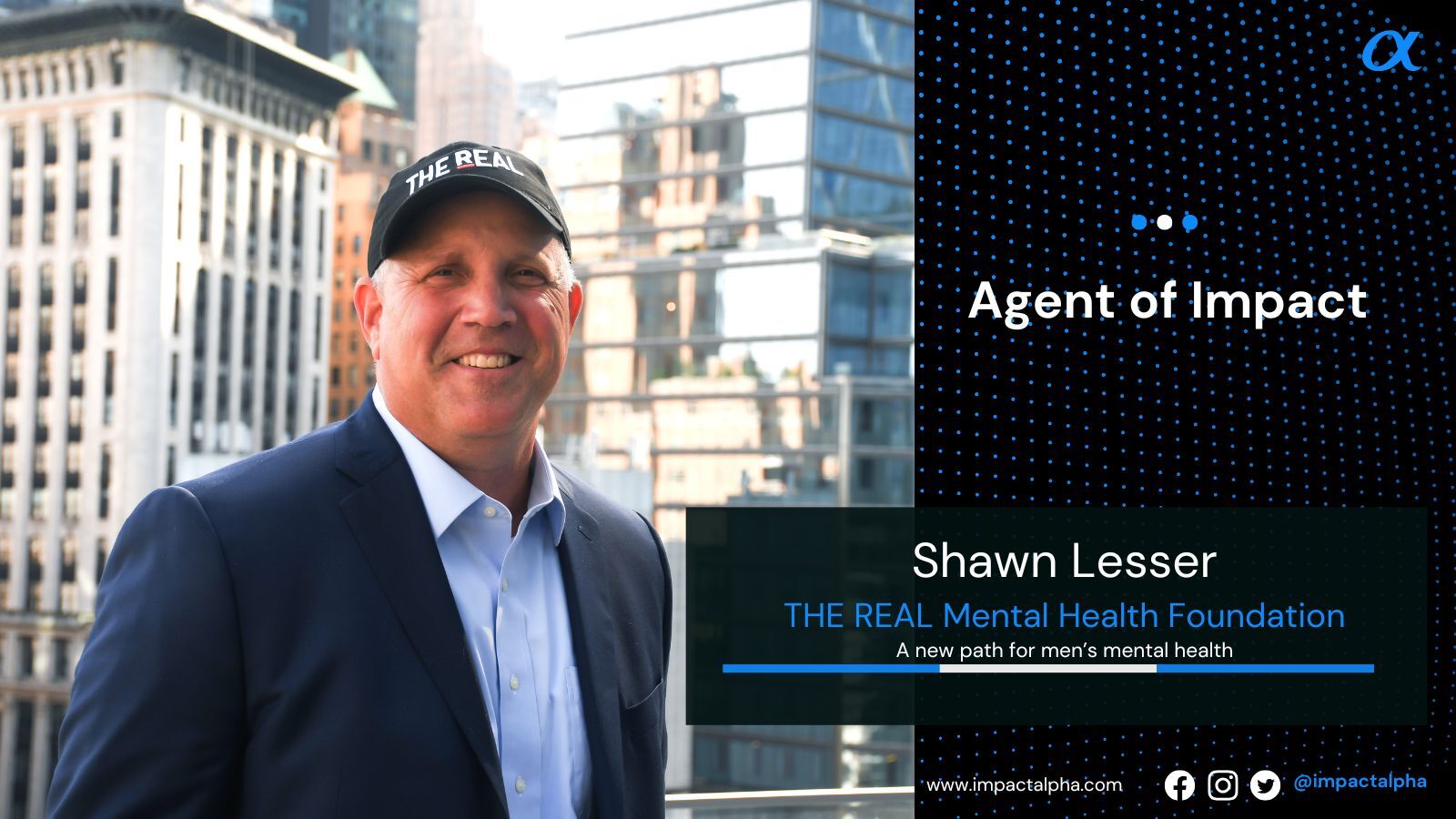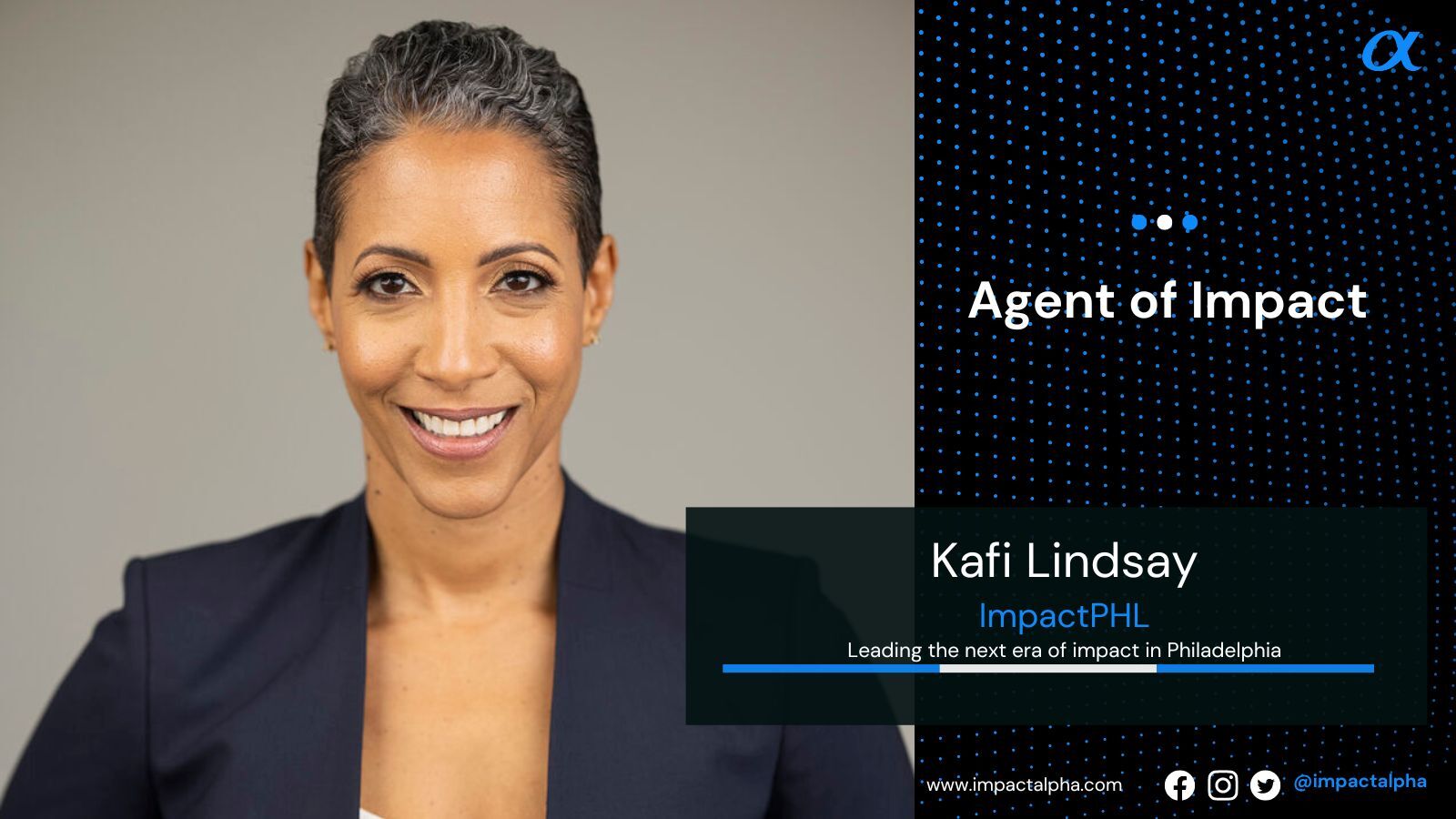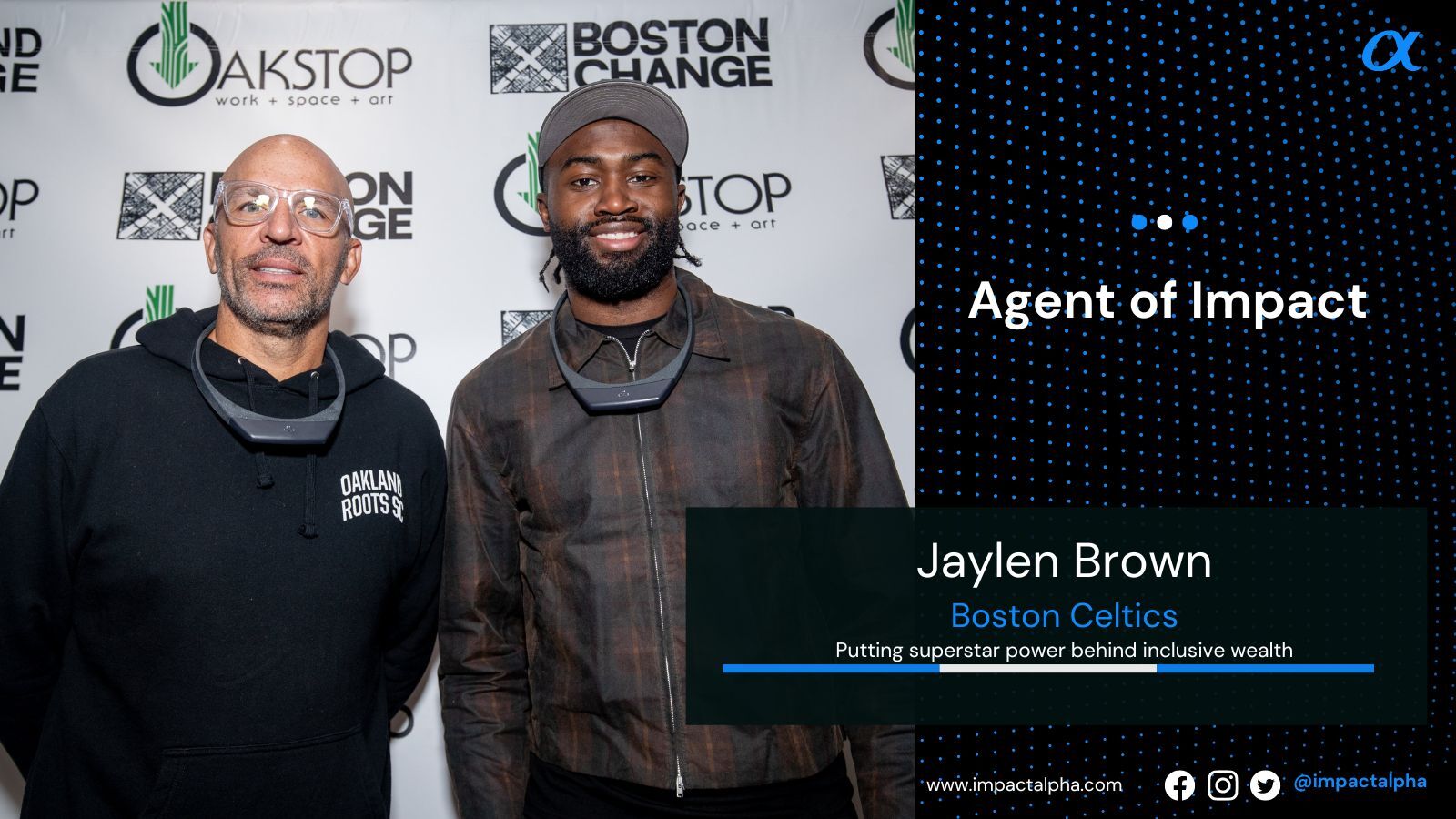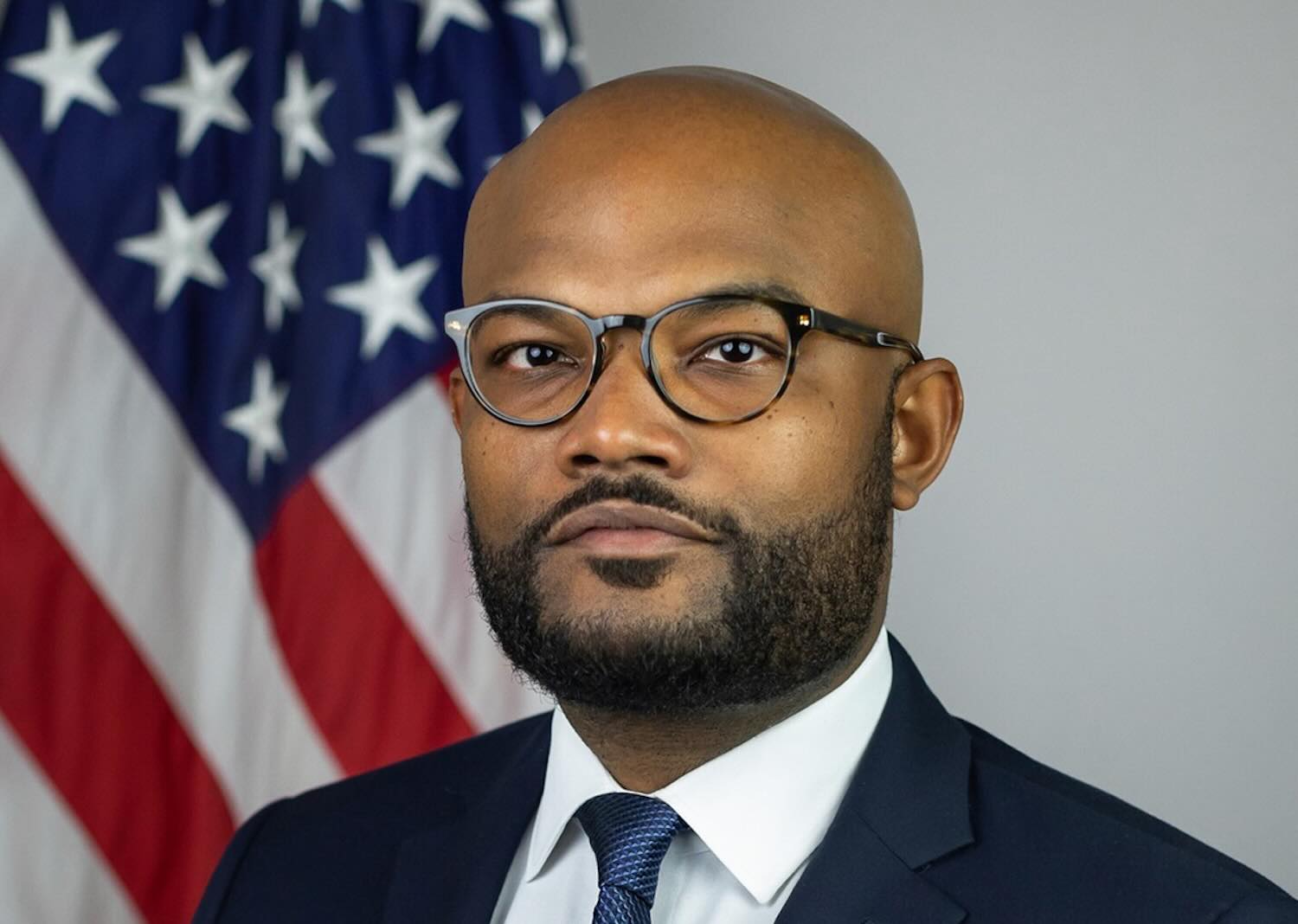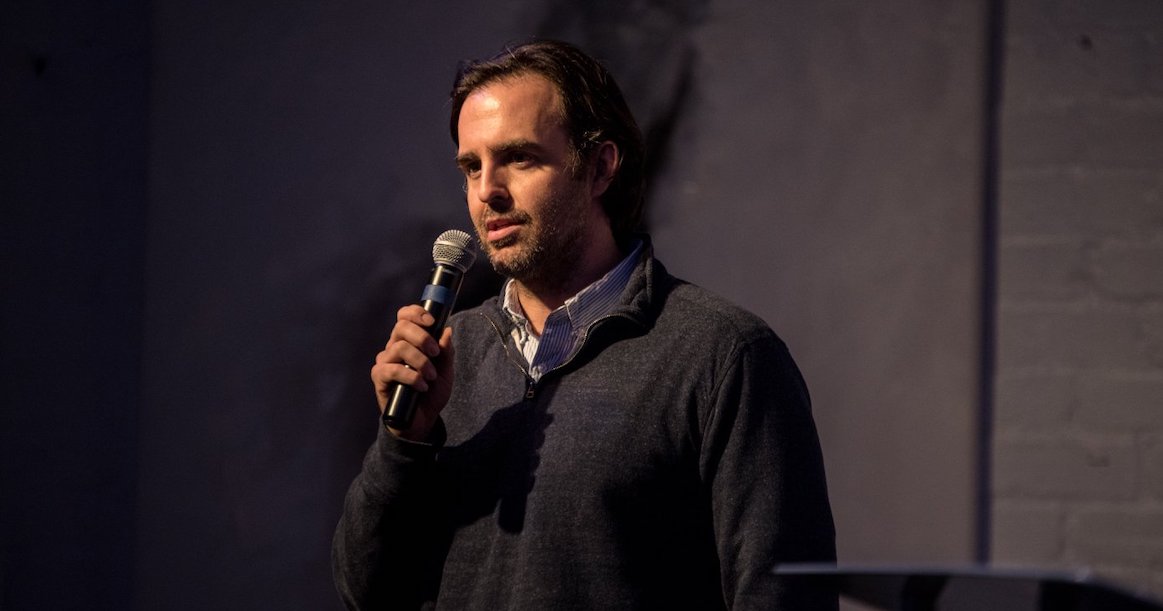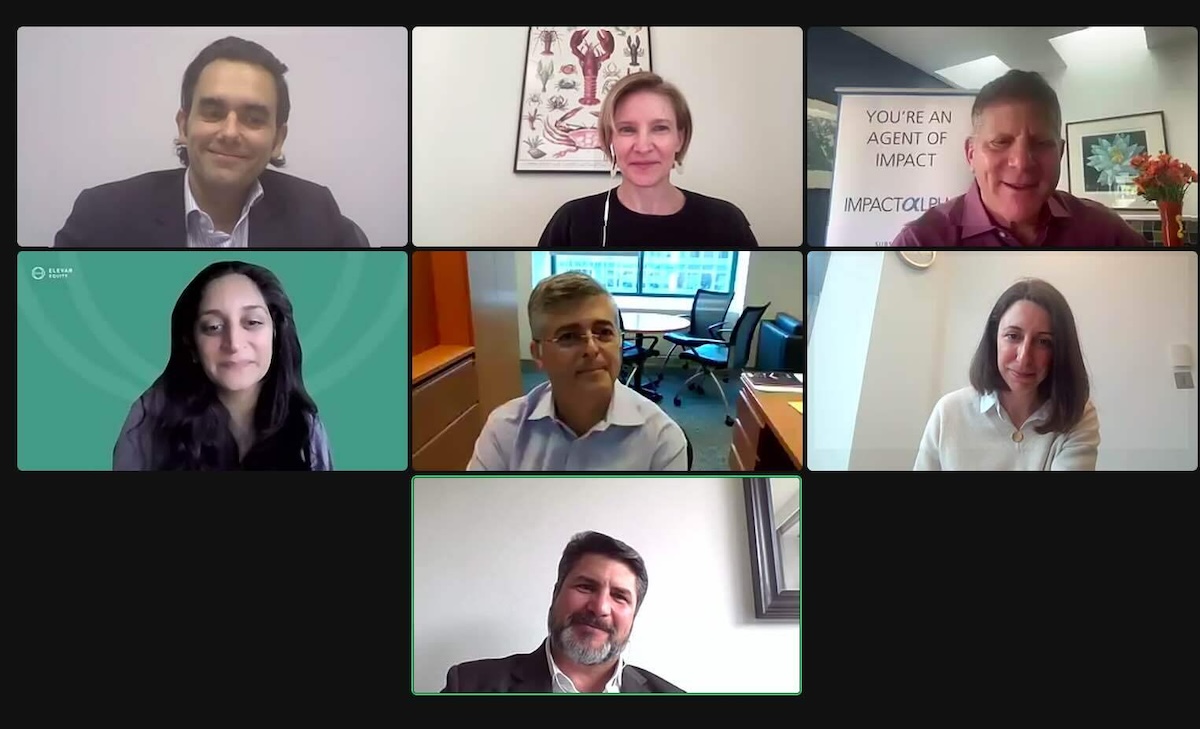ImpactAlpha, Jan. 13 – A small-business lender in the Mississippi delta. A microfinance bank in Uganda. A global development finance institution in London. Laurie Spengler is often the person to call to structure a transaction or design a financial vehicle to move capital toward impact.
“I care deeply about alignment between the source and the use of capital,” Spengler told ImpactAlpha. “Not just the quantum, but the terms and conditions for the capital to enable the impact to be realized.”
ImpactAlpha has called on Spengler often as well, for clear thinking and sharp insight in more than a dozen Agents of Impact calls and guest posts, including this week’s kickoff to our Scaling Impact series with the Catalytic Capital Consortium.
Last month, Spengler (and co-author George Surgeon) took the unusual step of admitting their mistake in an earlier post mourning a lost opportunity in a pandemic-era fund for community development financial institutions and minority depository institutions. “Boy, were we wrong!” they wrote “Treasury hit the ball out of the park.”
Spengler took a different path from many of her fellow Harvard Law School graduates, spending more than a year setting up legal clinics in Boston homeless shelters. “It was a paradox: we were helping people to win rights to housing, but there weren’t enough houses to go around,” she told one interviewer. “What was missing was the finance element.”
The law firm White & Case posted her to central and eastern Europe after the fall of the Berlin Wall. From there she launched her first advisory firm, sold it to her management team and was recruited to lead Shorebank International, the advisory arm of the pioneering community lender. When Shorebank ran aground in the Great Financial Crisis, the Dutch bank Triodos bought the unit and merged it to create Enclude, which was acquired by Palladium in 2018. She founded Courageous the next year.
Along the way, she has helped the community development financial institution Southern Bancorp restructure its balance sheet with $34 million in hard-to-find equity capital (better than deposits!) and helped BRAC convert its microfinance lender in Uganda to a deposit-taking bank. On the board of British International Investment, she has been a prod for gender-lens investing and a more catalytic approach.
When the COVID pandemic dealt a body-blow to small businesses worldwide and to emerging-market lending, Spengler called out the untimely aversion to risk of many impact investors and development finance institutions.
“What we are hearing and seeing is not just a hesitation to act, but an unwillingness to price for impact at a time of global pandemic, social unrest, and the incontrovertible exposure of deep systemic bias,” Spengler wrote.
Decamping from her home in London to care for her mother in Florida, she knocked on doors in the 2020 election. She resolved to ask not just for votes but for how people are doing. Her takeaway: “Meeting people’s real needs, and particularly people we may not know or see, must become an explicit commitment of the impact investing community,” she says.
“If our aspiration is to be the default paradigm for investing financial capital, we must be relevant in every community.”



